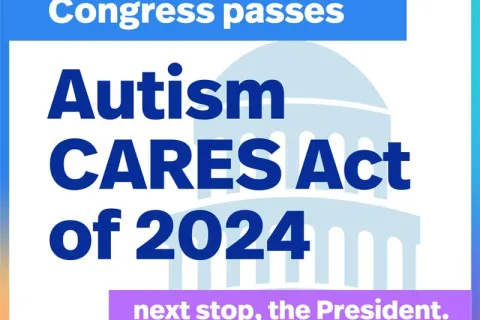Study links reading comprehension challenges in autistic children to specific early and pre-reading skill gaps
December 30, 2020Many children with autism struggle with reading comprehension abilities throughout their school years. To understand more specifically why children with autism but no intellectual disability lag behind their neurotypical peers in this area, a new study published in November pointed to two specific early and pre-reading skills as foundational to later reading comprehension abilities.
In language development, narrative skills are a pre-reading skill, such as retelling the events of a story in order and understanding how the parts of a story work together. Inference skills develop early in reading and include the ability to link the ideas in two sentences together.
For children with autism in this study, challenges with these two early skills were linked strongly with reading comprehension challenges as they got older.
“This unique study sets out to understand specific skills that can be supported early as children are learning to read to help them with successful reading as they progress through school and into adulthood,” said Thomas W. Frazier, Ph.D., chief science officer at Autism Speaks.
To measure the specific skills that support reading comprehension, 81 children ages 8 to 16 with varying levels of support needs read stories and answered questions about them, including making predictions and re-telling about what they read.
Researchers also compared these skills with the children’s vocabulary, or understanding of the meaning of words using age-appropriate standards. Regardless of the child’s age, more significant autism symptoms and lower vocabulary skills were linked to more challenges with narrative skills. By contrast, vocabulary skills and age, but not autism symptoms, were linked to challenges with inference skills.
Children whose narrative re-telling and inference skills scored higher in elementary school continued to show growth over the 2.5 year study. The Researchers concluded that working on these specific reading comprehension skills in early elementary education is critical for supporting comprehension of more complex material as they get older.
Researchers suggest future studies look at more specific age ranges to determine critical time periods and intervention strategies specific to elementary, middle and high school students.
“Reading comprehension as a specific area of development could be crucial to personalize how we teach language and reading skills to children with these challenges so they can be as successful as possible,” said Dr. Frazier.







